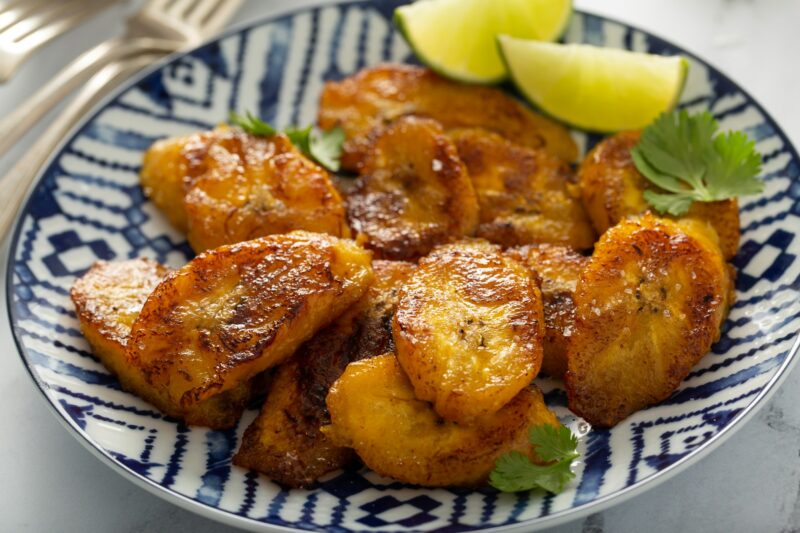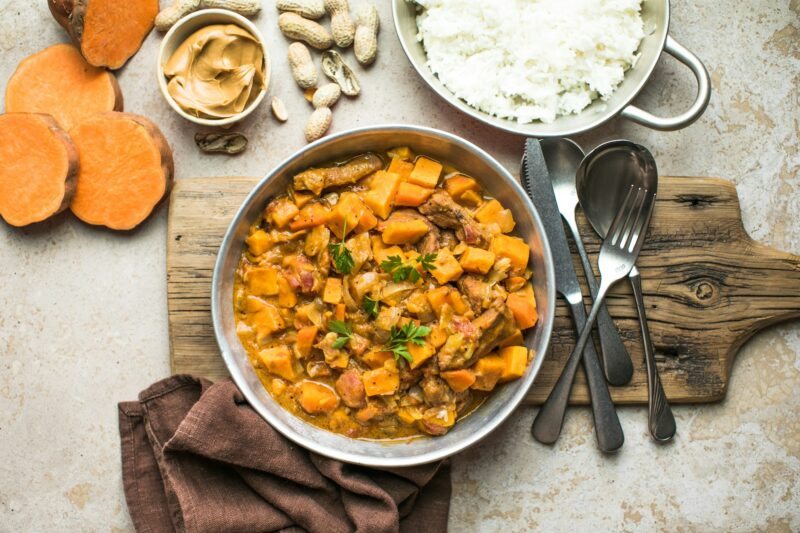More Than Maafe offers a delicious exploration of traditional Beninese dishes in an engaging and informative way. From its vibrant flavors to its cultural heritage, this culinary journey delves into the heart of Benin’s gastronomy.
This book takes readers on a sensory adventure through authentic recipes and personal anecdotes, celebrating the diverse and rich food traditions of Benin. Whether you’re a seasoned cook or a curious food enthusiast, More Than Maafe invites you to discover the soulful cuisine of Benin and explore the unique ingredients and cooking techniques that define this vibrant culinary landscape.
Get ready to immerse yourself in the captivating world of Beninese cuisine and embark on a delightful journey through food, tradition, and culture.

1. Traditional Ingredients
Discover the essence of Benin’s traditional dishes through a culinary journey celebrating authentic flavors and ingredients. Delight in the rich tapestry of traditional ingredients infused in dishes beyond the renowned Maafe, unveiling a world of diverse and tantalizing flavors waiting to be savored.
| Traditional Ingredients |
| Locally sourced and seasonal produce |
| Key staples in Benin’s cuisine |
Benin’s traditional dishes showcase locally sourced and seasonal produce. Key staples include yams, plantains, and palm oil. These ingredients form the basis of flavorful dishes such as Maafe, a hearty peanut stew.Embracing Benin’s cuisine is a delightful journey through vibrant flavors and rich cultural heritage.
2. Maafe: Benin’s Beloved Dish
Explore Benin’s culinary delights by diving into dishes beyond Maafe, like Gboma Dessi and Akassa. Discover the rich flavors and cultural significance of traditional Beninese cuisine.
| Maafe |
| Origin and significance of Maafe |
| Maafe is a traditional dish in Benin, deeply rooted in the country’s culinary history. |
| Ingredients and preparation techniques |
| Maafe usually consists of meat, groundnuts, tomatoes, and other spices cooked together to create a rich and flavorful stew. |
| Variations and regional adaptations |
| Different regions in Benin have their unique spin on Maafe, incorporating local ingredients and flavors. |

3. Other Popular Traditional Dishes
Benin boasts a rich culinary heritage beyond the popular dish of Maafe. Let’s explore some other traditional favorites that are loved by the locals.
Kuli Kuli: This crunchy peanut snack is a popular street food in Benin. It is made by roasting and grinding peanuts, then combining them with spices and deep frying until crispy. Kuli Kuli is a great source of protein and serves as a tasty on-the-go snack.
Akassa: This delightful dish is made from fermented corn and is similar to a porridge or pudding. It is often enjoyed with a variety of toppings such as fish, meat, or vegetables. Akassa is a versatile and filling dish that is loved by many.
Aloko: If you’re a fan of plantains, you’ll love Aloko. These fried plantains are served with a spicy sauce, adding a burst of flavor to each bite. Aloko can be enjoyed as a snack or a side dish and is a delicious way to experience the local cuisine.
Tchoukoutou: Benin’s traditional millet beer, Tchoukoutou, is an integral part of the country’s culture. It is brewed from fermented millet and has a unique taste that varies depending on the brewer. Tchoukoutou is commonly enjoyed during social gatherings and celebrations.

4. Traditional Cooking Methods
Woodfire cooking: The heart of Benin’s cuisine is the traditional woodfire cooking, which imparts a unique smoky flavor to the dishes. This method involves using open flames and natural wood to cook various ingredients, resulting in rich and authentic flavors. The slow cooking process allows the flavors to meld together, creating a depth of taste that is unparalleled. Steam cooking and clay pots: Another traditional cooking method in Benin involves steam cooking using natural steam from boiling water. This gentle cooking technique helps retain the natural flavors and nutrients of the ingredients. Additionally, clay pots are commonly used in Benin’s traditional cooking methods, adding earthy notes to the dishes.
5. Cultural Significance Of Benin’s Traditional Dishes
Benin’s traditional dishes offer more than just a satisfying meal. They are deeply rooted in the country’s history and identity. These dishes play a crucial role in various rituals and celebrations, symbolizing the cultural significance of food in Benin. The flavors and ingredients used in traditional dishes reflect the rich heritage and traditions of the Beninese people. From staple foods to festive delicacies, each dish carries a unique story that resonates with the country’s cultural fabric.
 fire wood at night
fire wood at night6. Preserving Benin’s Culinary Heritage
Preserving Benin’s culinary heritage involves overcoming challenges and making efforts to ensure traditional recipes are not lost. One of the main challenges is the availability of ingredients as traditional dishes often require specific local produce and spices. To tackle this, promoting sustainable farming practices is crucial. Encouraging farmers to cultivate native crops and use organic methods can help preserve the biodiversity of the region while maintaining the authenticity of the dishes. Additionally, efforts are being made to document and record traditional recipes, passing down the knowledge to future generations. This ensures that the culinary heritage of Benin continues to thrive and be appreciated by locals and visitors alike.
Frequently Asked Questions Of More Than Maafe: A Delicious Exploration Of Benin’s Traditional Dishes
What Are The Traditional Dishes Of Benin?
Benin offers a rich culinary heritage with dishes like maafe, kedjenou, and foutou. These traditional dishes showcase the diverse flavors and cooking techniques of the region.
How Is Maafe Prepared In Benin?
Maafe is a popular dish in Benin made with meat, vegetables, and a rich, peanut-based sauce. It is typically slow-cooked to allow the flavors to meld and create a hearty, savory dish.
What Makes Benin’s Cuisine Unique?
Benin’s cuisine is distinguished by its use of local ingredients, such as cassava, yams, and seafood, as well as bold flavors and spicy seasonings, showcasing the country’s rich food traditions.
Are There Any Vegetarian Options In Benin’s Cuisine?
Yes, Benin’s cuisine offers a variety of vegetarian dishes, including delicious options like fried plantains, spicy peanut stew with vegetables, and cassava-based dishes, providing flavorful options for vegetarians.
Conclusion
To conclude, Benin’s traditional dishes offer a delightful journey for food enthusiasts. From the rich and savory maafe to the flavorful fufu, these culinary delights showcase the country’s vibrant culinary heritage. Exploring Benin’s traditional cuisine allows you to savor unique flavors and embrace the cultural significance of its traditional dishes.
Expand your palate and embark on a culinary adventure with Benin’s traditional delicacies.